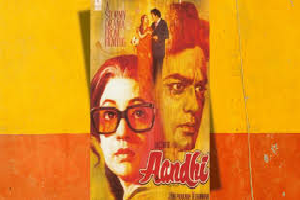11

Politicians and social activists are not the only class seeking publicity by media. Religious and cultural organisations also court newspersons in a big way and often invite them to their various functions. As a journalist I too had such invitations; at times to give basic training to religious organisations to tell them how their volunteers can do media relationing. However, to report on or talk to religious people is one thing, but to be the chief guest at a conference on spiritualism and speak on the subject is quite another, as I realised last week.
The occasion was a meeting in Noida of the Brahmakumaris, also known as the BK organisation, preaching about spiritualism to elevate one’s personality and create a healthy, tension-free society. They hold training sessions for various professional groups and individuals who are in search of inner peace. The occasion was the visit of their London-based meditation and spiritual trainer Brahmakumari Ruchi, a chartered accountant by profession.
As was expected, this young but dedicated lady spoke on the intricacies of spiritual development and the way it gives you strength and to your mental make-up to withstand the rough and tumble of life. Quoting from her own life, she told the audience how meditation gave her the inner strength to withstand the shock of her father’s death in a road accident. The audience in the capacity-filled conference hall heard her in pin-drop, the characteristic of a crowd of the devout. How much the people present there could understand her or how could they relate to it was best known only to them.
Then, it was my turn to say a few words. Though a veteran of media education with so many academic and non-academic presentations behind me, the challenge was formidable. I wanted to say something commonplace and practical with which the audience could relate itself. My task was even more daunting as I had very little time at my disposal, and I had to be brief, crisp and short.
No doubt, to talk about a subject which was outside my periphery was difficult as such. Then, being an iconoclast, another problem was how could I say something which was not odd for the audience and embarrassing to my hosts yet in tune with my conviction and my idea of individual and collective social responsibility.
My problem was compounded by the fact that while reading about the subject to speak, I had discovered that the term spiritualism was relatively a new term coined in the West and put into currency in the 19th century. Being citizen of an age-old civilisation and its rich cultural heritage the discovery was quite revealing for me. But then I realised that the word spiritualism was not the right English translation of the term Aadhyatma or Adhyatmikta, a concept given to us by our sages long ago.
To a media person always by instinct in search of something newsy, it was quite a challenge. That set the tone of my brief presentation. Aadhyatma was related to inner search and self-purification and not so much related to matter and spirit ( life beyond death ), which the Western philosophers had dealt with.
Now the job had become easier for me. I thought about the wisdom of our modern age thinkers and philosophers like Swami Vivekanand, Raja Ram Mohan Roy, Maharishi Arvind and Mahatma Gandhi and came to the conclusion that service to human beings, especially the weak and the poor was the mantra, It was essential for broadening the sphere of our sensitivity and raising the level of consciousness besides being the best way for self- realisation that leads us on road to inner peace and tranquillity.
In my brief address, I talked of a four-point course of action for average folks without getting into the intricacies of a high level of moralistic discourse, which they would find difficult to comprehend and hard to follow. I emphasised that my four-point course can put us on the road to Adhyatmikta or self-realisation for inner peace.
The prescription is simple. The first point is simple living and high thinking –a moral told to us in our childhood. More than half of our problems are because, under the influence of an aggressive advertising media, we have adopted the culture of consumerism and have forgotten virtues of simplicity. A lot of what we buy and consume is really not needed. Often, it is harmful. If we stop this wasteful expenditure, we will certainly be better off.
The other point I made was the principle of service before self, something which we again learnt in our childhood. If you think of others, you automatically rise above a narrow-minded attitude and expand your mental and intellectual horizons. This brings noble and good ideas to your mind, and you move on the road to being better human beings without any external efforts.
The third and perhaps the most important point is empathy towards the weak and helpless people belonging to the disadvantaged sections of society. This makes you a true humanitarian, and you get committed to the welfare of the underdog without having any class or caste consideration in your mind.
By making small charities, many people claim that they are good, decent and caring human beings. But they are not, as most of the people belong to the middle and upper middle class in our society and have a feudal mindset. If we have a sense of superiority over the poor and the weak, we cannot rise above our ugly selves. To inculcate a truly democratic temperament and be someone practising equality is not easy. The best way to have genuine concern for the weak and the poor is to adopt the doctrine of Antodaya – the rise and growth of the last man in the line as prescribed by Mahatma Gandhi.
The fourth and final point is meditation, which to my mind also includes deep thinking about the three points discussed earlier and charting out your course. If we do honest thinking and critical self-analysis, then we do not need any religious discourse to improve ourselves for becoming better human beings. I also feel that such deep thinking is, in essence, meditation.
I, therefore, feel that spiritualism can be practised by following simple behavioural practices and modifying our mental attitudes, which is not difficult if we are sincere and honest with ourselves. How the learned and pious religious preachers and dedicated Sadhaks -Sadhvis would feel about my prescription for the common man to tread on the path of spiritualism can be anybody’s guess.
( Pradeep Mathur is chief editor of mediamap .co. in website )
**************





















































































































































































































































































































































































































































































































































































































































































































































































































































































































































































































































































































































































































































































































































































































































































































































































































































































